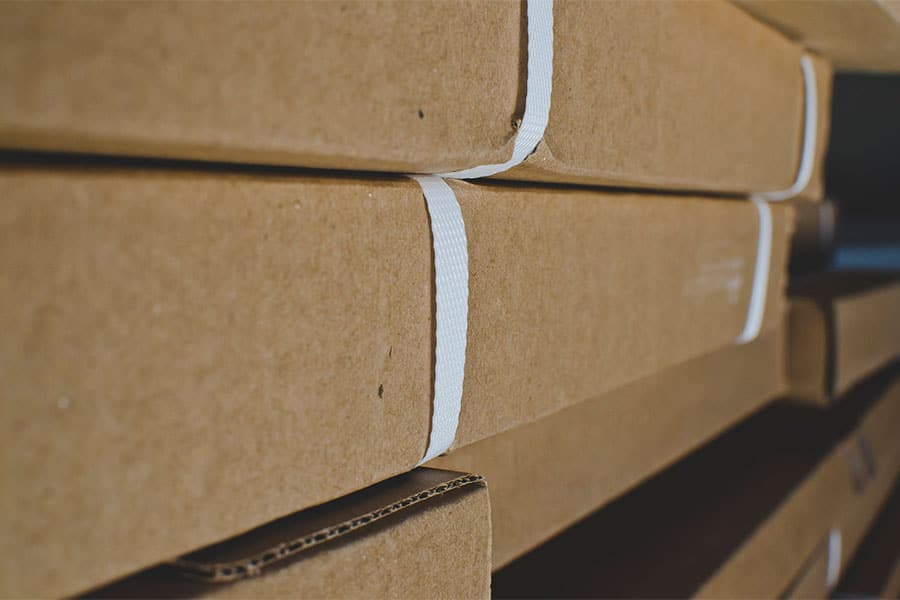Polyester, polypropylene, and steel are the most common strapping materials used in the modern shipping industry. Each has its strengths, weaknesses, and unique properties. But which is the strongest? Here we will explore them all and compare these common materials to decide which strapping material is best when strength and rigidity are the most critical factors.
Polypropylene, The Weakest By Far
To get it out of the way quickly, polypropylene cannot stand up to its contemporaries regarding strength. While it is the least expensive material, save perhaps rope, polypropylene struggles to retain its shape and has very low rigidity. Best suited for small and light loads, it is not often seen in consideration as the strongest or best strapping material. Polypropylene certainly has its uses, as its most significant draw is that it can be applied by hand rather than with machinery, but for high or even medium-weight products, it is likely not the best choice.
Polyester Vs. Steel Strapping For Shipping
With polypropylene out of the mix, let’s look at the two biggest competitors in the strapping products game. Steel is the traditional option regarding strapping materials and is a mainstay of the rail industry, bringing a nearly unmatched rigidity and ability to weather the elements. Polyester is a synthetic material you may be more familiar with as a clothing product. However, as a strapping product, it is an incredibly versatile component with incredible strength and shape retention. While steel may seem the obvious choice for most robust, you may be surprised by the end of this, which is the superior strapping material.
Break Resistance Comparison
In the polyester vs. steel race, the closest margin is that of break resistance. Steel and polyester materials are identical in weight, or the products that can be handled, and each has little give when put under pressure. Steel, when coiled, can be stronger than polyester; however, it struggles with one major setback. Strapping any hard angle, from 45-90+ degrees, can create a weak point for steel strapping. Due to its flexible nature, polyester is resistant to breaking on corners and tends to hold up better than steel.
Winner: Polyester
Caveat: While polyester has a similar strength to steel, it does have some flexing that can happen when put under pressure, which can be a positive or negative factor depending upon the rigidity you need. However, unlike polypropylene, polyester has a higher tolerance and retains its shape well.
Tools Needed
While some tools may differ, hand tools and their cost for polyester and steel strapping are nearly identical. Neither product can be easily applied by hand, but polyester has a lighter weight, making it a bit less arduous of an installation process. This benefit is negated when using machines to strap pallets.
Winner: Tie
Price Comparison
Here is the most significant difference between polyester and steel strapping. Firstly, polyester is about 1/4 of the weight of steel, making it nearly as strong without increasing shipping costs based on weight. Furthermore, while it is more expensive than polypropylene, polyester is roughly 30-40% cheaper than steel to manufacture. This price difference is due to polyester being a synthetic material that does not need to be dug up, refined, and shaped. It can be made and processed in the same factory, cutting down on material and shipping expenses.
Winner: Polyester
Final Thoughts on Choosing the Strongest Strapping Material
While polypropylene and steel have their uses, polyester is the superior strapping product by a decent margin. Thanks to its strength, versatility, and flexibility, polyester is poised to dethrone steel in almost all strapping situations outside of those where steel is federally mandated for use.
If you’re interested in learning more about the strongest strapping material for your needs, contact the Strapping-Products.com team today by phone at 888-803-8140. We carry various strapping materials, including polyester, polypropylene, and steel.


